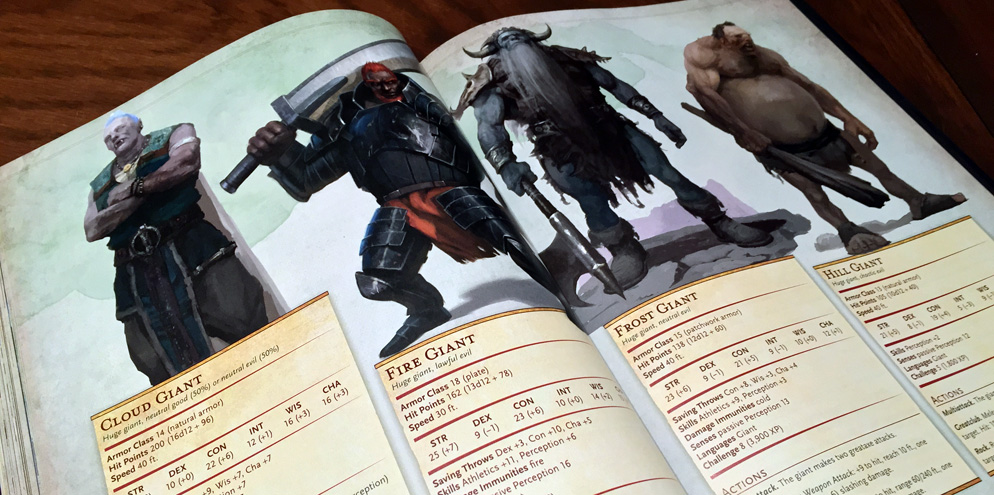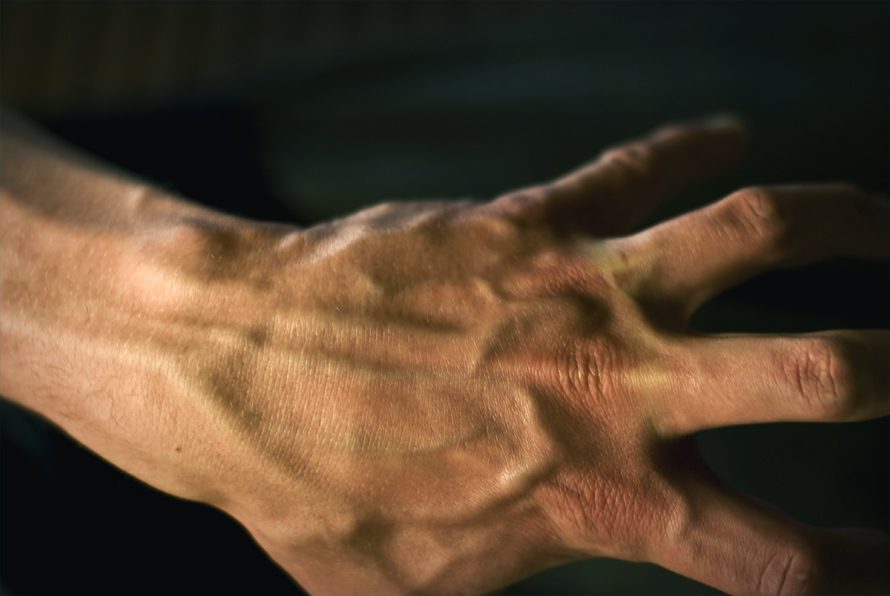For the first time ever with the particular gaming group I’m in, we’re doing Dungeons & Dragons. Grant has been wanting to try out the 5e rules and it didn’t take any arm-twisting to the get the remaining three of us on board. This is going to be the colonization game that Grant has alluded to on the show, which is a neat idea to begin with, and we’re going to be doing a more Renaissance-era game than a medieval one to go with the idea of exploration and colonization, but it’s still going to be D&D.
There’s a reason why D&D and its progeny such as Pathfinder, 13th Age and the entire OSR movement continue to have staying power – the basic gameplay feedback loop of dungeon crawling, fantasy (whatever its level), and leveling up is so much fun that it’s spawned entire genres of digital representations. Everything from roguelikes, to various types of traditional cRPG, to Diablo and the Dark Souls games have their roots in various flavors of D&D. There’s a lot of fun and excitement to be gained from battling monsters and collecting treasure.
But there’s also something else that’s cool about this type of game: Character creation is front-loaded. Because you pick a class (or two) and then follow it from there, the possibility exists to define more about who your PC is and who they will become in a D&D style game than in something more open-ended like GURPS or Savage Worlds. A class gives you a predefined role to play and as such, it gives you a lot of room to think about how you’ll go about coloring that particular archetype in the campaign. And because of that, I’ve been sitting here entertaining a number of possibilities.
I’ve been thinking about a tiefling paladin/rogue that’s basically an investigator and advocate for the religion he serves and looks like Judge Frolo but acts much more like the bishop in Les Miserables. I’ve been thinking about a wizard, ranger, or wizard/ranger that’s basically the benevolent hermit that lives in the woods and keeps an eye out for the safety of the town(s) he lives near. I’ve been thinking about a wizened, kindly old Celtic-style druid, about a tough old man-at-arms (fighter) who will train the colonists in how to keep bandits and wild beasts at bay with spear and palisade, about the cleric of a sea god on the ship as a hedge against the dangers of the long voyage, and that was just TODAY. (Grant floated the D&D idea on Saturday evening when we wrapped up our Rogue Trader micro-campaign.)
The classics are classics for a reason. Gygax and Arneson definitely managed to bottle lightning when they made D&D, and while it has benefitted from refinement over the years, it’s telling that most of the successful refinements have been ways to make it more like itself. I love all kinds of different RPGs, but I never want to reach the point where I sneer at D&D and turn my nose up at it. Much like cheesecake, I don’t want nothing BUT it all the time, but if I never got a chance to have it again, I would definitely be sad.





2 thoughts on “The Classics are Classic for a Reason”
My pet peeve with D&D is that character classes have too often defined the characters in the eyes of many DMs and many players. I remember once an NPC asking if my character was a fighter. I immediately started placating him, saying that I wasn’t there to fight, just to talk. Words like Paladin, Monk, Ranger, Druid have a lot of cultural baggage that they can unintentionally carry and which may not suit the campaign setting.
However what 5th ed brings as far as character creation are backgrounds and trinkets. I’ve found that backgrounds define a character much more than class. In your examples, the backgrounds of acolyte, outlander, scholar, mercenary, or sailor actually speak more about the character than the class names. In introducing characters to each other, the backgrounds are a great way to refer to one another.
As for the trinkets, I’ve now hit the point where I roll a trinket to begin with and let that start the back story. Why does the character have a large red egg and carry it with him/her everywhere? For example, it might be a preserved dragon egg; I might start the character creation process with a concept of someone fascinated with dragons, and in game, he might refer to himself as a dracologist. That’s a much more interesting way to introduce a character.
I think one of the reasons D&D has me so excited is that those cliches don’t seem to apply to our group as much, if at all. I do like your insights about backgrounds and trinkets in 5e, though – I’ve been so busy looking at class variants and thinking about the possibilities that I hadn’t even started digging into that part of the book until you said something. (I just got my 5e PHB this week.)